The goal of the ASD is to take the bottom 5% of schools in Tennessee and in five years transform them into schools that are in the top 25% of schools in Tennessee. As Tennessee schools are supposedly all improving at record rates, this would require that the ASD school progress at much faster rates to get from the bottom to near the top.
Last year I wrote my first annual report on the status of the ASD in a post called The Underachievement School District. At that time, they boasted that they got the highest growth score possible, a 5 out of 5, but also revealed that their reading scores dropped from 18.1% proficient in 2012 to 13.6% proficient in 2013 while the rest of the state rose from 49.9% proficient to 50.3% proficient. I questioned the validity of the five point growth scale based on these numbers.
The state tests in Tennessee are called the TCAPs. This year there was a fiasco where the TCAP score release was delayed so long that schools were not able to use the scores in the student’s grades. Tennessee is all about ‘accountability’ so this was one more straw that made parents and also Republican state legislators to call for Huffman’s resignation.
Early July 2014, I wrote about how the state released a summary of the TCAP scores. It was revealed that 3-8 math increased by less than 1% while 3-8 reading went down by less than 1%. Nothing to celebrate there. Instead they focused on supposed high school ‘gains.’ This was ironic to me since Tennessee was so proud of their grade 4 and grade 8 NAEP gains yet when the 12th grade NAEP showed that Tennessee didn’t do so well there, they said that they can’t be held responsible for high schoolers since those students had most of their academic careers before the reforms set it. So they can’t take blame when high schoolers do poorly, but they will take the credit when they do well.
Tennessee is releasing TCAP results in stages. The big picture came out around July 4th, the school results are coming, they say, around August 15th, and the district results were released today, July 30th. With the release of the district data, they also had some press releases telling the newspapers what to say. In the whole country I’d say that the education reporters in Tennessee are the worst. They just take whatever the press releases say and print that without any delving into the numbers themselves. It is a shame I have to do their job for them, but I guess someone’s got to do it.
With the release of the district data, there are the Louisiana style invented statistics like this one:
- From 2011 to 2014, the percentage of districts with the majority of their students proficient or advanced in 3-8 math increased from 18 percent to 57 percent.
So I was interested to see how the ASD fared. Looking over their scores, 21.8% passing 3-8 math and 17% passing 3-8 reading, the first thing I looked for is what sort of progress they are making in going from the bottom 5% to the top 25% in five years. Two years in and they are still in the bottom 5%, dead last with the second to last district not even close to them. They will surely have to pick up the pace on their growth.
Then I saw this tweet
They included this bar graph showing their ‘growth’ over the past two years in math, ELA, and science. I noticed that while they technically did ‘gain’ 3.4% in their reading scores, they are still 1.1% down from what they were in 2012. This reminds me a bit of a guy who is gambling and you ask him how he’s doing and he says “I’m up $1,000 in the past hour without mentioning the $1500 he lost in the hour before that.” Also these bars since they are only being compared to each other do not make it clear how low these scores really are.
But there does need to be something to celebrate so the ASD made up the most outrageous statistic of all and presented it in this graph.
SCORES ARE AN AVERAGE OF FRAYSER 9GA AND GRAD ACADEMY; GROWTH IS BASED ON COMPARABLE SCS HIGH SCHOOLS (I.E., CARVER HS AND FRAYSER HS 9TH GRADE CLASS)
I’ll give a hearty thumbs up to any Tennessee education reporter who gets to the bottom of what this could possibly mean.
As I mentioned at the beginning of this post, I was once good friends with Chris Barbic, and maybe he still sees me as a good guy, though an annoying one. I hope so. A year and a half ago he was the recipient of one of my ‘classic Rubinstein’ open letters. I write him emails from time to time, mostly yelling at him for having become a ‘reformer.’ He hasn’t written me back in a while, actually. But from time to time he will respond to one of my tweets. I’ll then tweet back and a bunch of others will usually join in and then Chris, like the groundhog seeing his shadow, but this time it is him seeing his own reflection, and he goes into hiding for a few months.
Just yesterday in the Tennesseean newspaper, it was reported that the State-led district expects to take over even more Nashville schools over the next 2 years. The newspaper even printed the undeniable fact that Reading scores for the ASD are still not back to the levels they were at prior to the ASD takeover of schools in 2012. Wow. That is a whole lot of disruption to those students, teachers, and communities for results that are worse than they were before the ASD took over! Plus, the citizens in these ASD communities have indefinitely lost local control and representation through an elected school board.
Who is this system really benefiting? Follow the money.


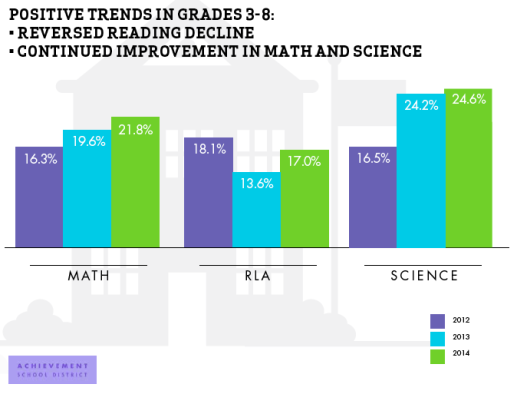
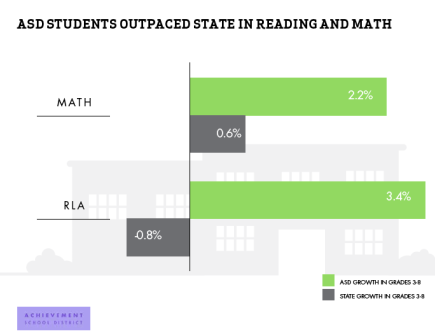
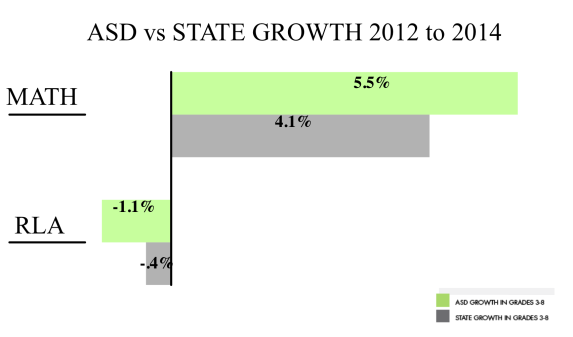
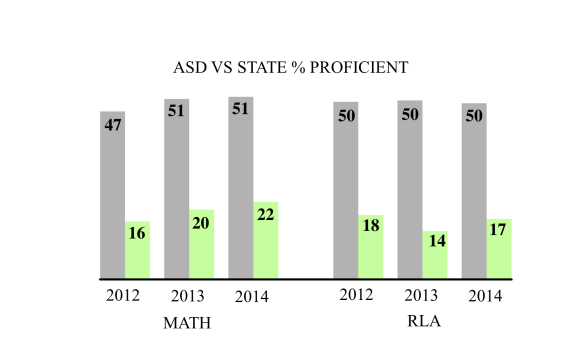
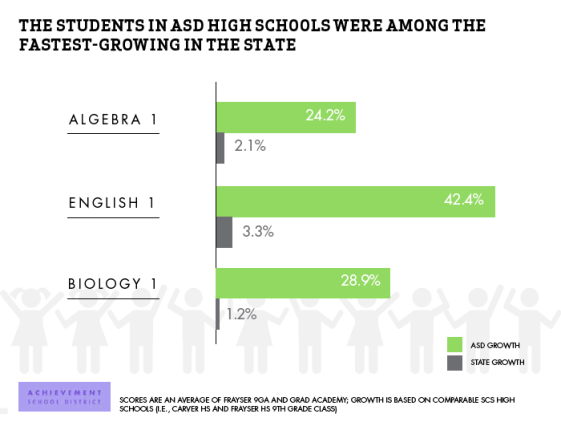


 RSS Feed
RSS Feed
